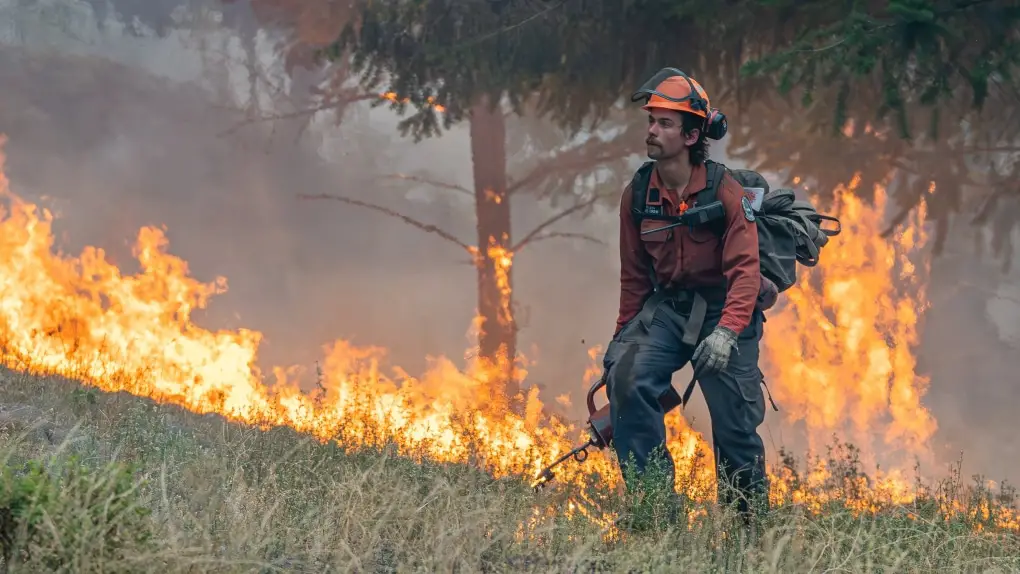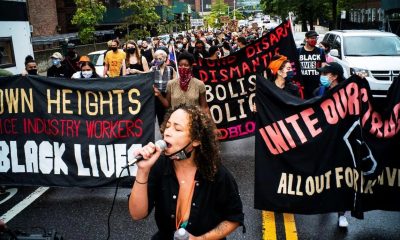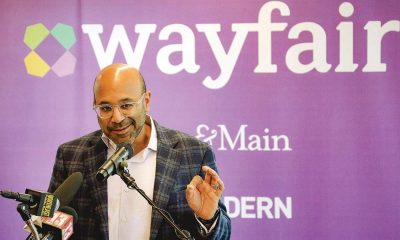News
Adult Movie Industry Battles US States Over Age Verification Law
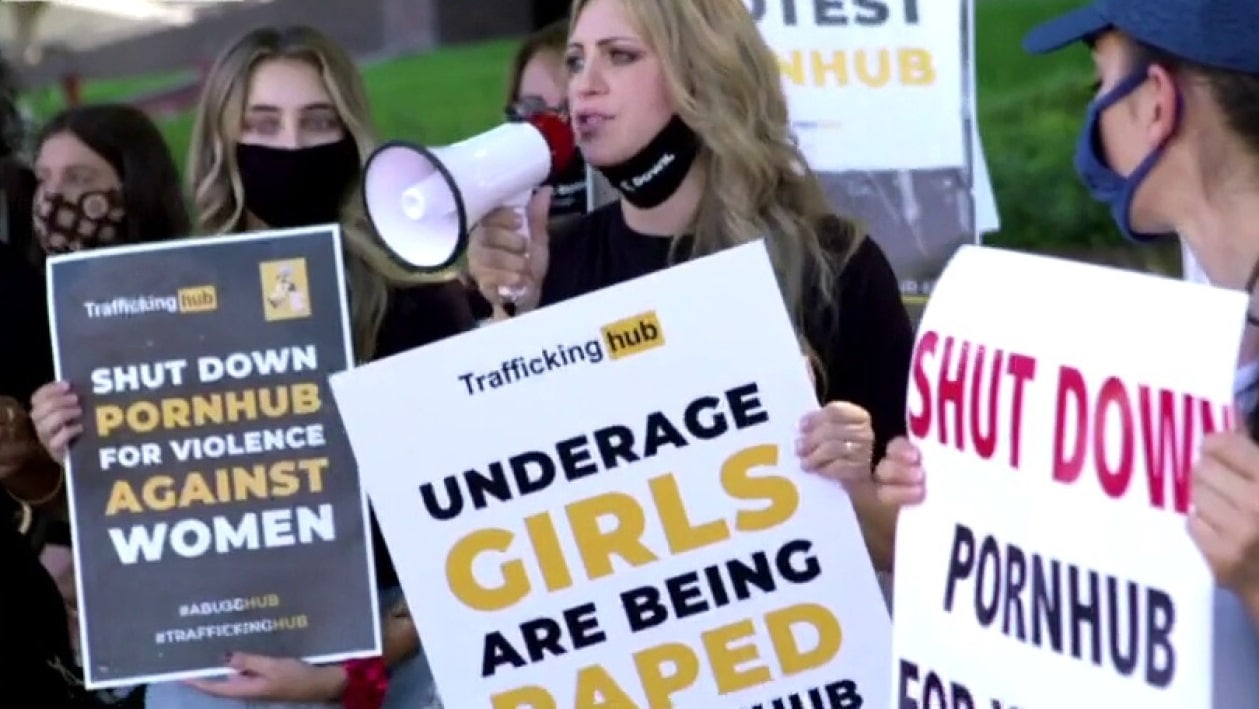
Phub, along with other members and advocates in the adult industry, has taken legal action against Texas to challenge the state’s forthcoming law mandating age verification for accessing adult content.
The complaint, filed in the US District Court for the Western District of Texas, aims to block the law scheduled to take effect on September 1. The plaintiffs, including Pornhub and the Free Speech Coalition, assert that the law violates the US Constitution and the federal Communications Decency Act.
They argue that the law’s approach is ineffective and overly restrictive, and that alternative methods such as on-device content filtering would be more suitable for restricting access to adult content for minors.
Overview of Phub’s Lawsuit Against US States
The Basics of the Age Verification Law
The controversy stems from the enactment of an age verification law by several US states. The law mandates adult entertainment websites to implement stringent age verification processes to prevent minors from accessing explicit content. It requires users to provide personal identification or use third-party verification services before gaining access to such material.
Phub’s Position on the Law
Phub, a leading adult entertainment website, has taken a firm stance against these regulations, asserting that they infringe upon users’ privacy and pose significant technological and ethical challenges. The company argues that the new law places an undue burden on websites, potentially compromising user data security.
States Targeted by the Lawsuit
Phub’s legal action targets the states that have implemented the age verification law, including California, Florida, and New York, alleging that the legislation violates constitutional rights and imposes unmanageable compliance demands on online platforms.
By taking a strong stance against the age verification law, Phub seeks to safeguard the privacy of its users and uphold its operational integrity, sparking a significant legal battle that could potentially shape the future of online content regulation.
The Legal Arguments Presented by Phub
Claims of Constitutional Rights Violations
Phub argues that the law mandating age verification and health labels on adult content violates the constitutional rights of both the website and its users. The company asserts that such regulations infringe upon the First Amendment rights to free speech and expression, as upheld by the recent U.S. federal court ruling. Phub contends that the law’s true purpose is not to protect minors but to impede individuals from accessing constitutionally protected material, emphasizing the ideological and political motivations behind the legislation.
Argument against the Effectiveness of Age Verification
Furthermore, Phub presents a compelling case against the effectiveness of age verification measures, asserting that these requirements would compromise users’ privacy and security.
Phub emphasizes that the implementation of digital ID verification could potentially expose the personal information of users, raising concerns about privacy violations and the unauthorized monitoring of individuals’ online activities. The company argues that the proposed law lacks a foundation in scientific or technological evidence and primarily serves to hinder access to protected forms of expression.
The Impact on Online Privacy and User Security
Phub highlights the significant impact of the law on online privacy and user security. By requiring digital ID verification and imposing stringent age verification measures, the legislation could potentially subject users to unnecessary intrusion and surveillance.
Phub contends that such regulations have the potential to compromise the privacy of individuals engaging with legal and constitutionally protected content, raising broader concerns about online privacy and security within the digital landscape.
For more information on the legal implications and challenges regarding online privacy and user security, visit [related website].
The States’ Defense
The Intentions Behind the Age Verification Law
The age verification law was enacted by several U.S. states with the primary intention of protecting minors from accessing explicit content on online platforms. By requiring websites to implement robust age verification measures, the states aimed to prevent underage individuals from being exposed to inappropriate material that could potentially harm their mental and emotional well-being. The law reflects the states’ commitment to upholding ethical standards and safeguarding the welfare of young individuals in the digital realm.
States’ Response to Phub’s Legal Claims
In response to Phub’s legal challenge against the age verification law, the states have vehemently defended their regulatory actions. The representatives of the states have emphasized that the law is a proactive step towards promoting a safer online environment for minors.
They have asserted that the implementation of age verification measures is crucial in preventing minors from accessing age-inappropriate content and protecting them from potential harm. The states remain resolute in their stance that the law serves the best interests of young individuals and upholds moral and ethical responsibilities in the digital landscape.
Experts Supporting the Law’s Effectiveness
Numerous experts from child psychology, digital safety, and legal domains have expressed support for the age verification law implemented by the states. These experts have provided empirical evidence and professional insights regarding the potential risks associated with minors accessing explicit content online.
Their collective stance reinforces the critical necessity of implementing stringent age verification measures to mitigate such risks. Their endorsements further affirm the rationale behind the states’ decision to enact the law and underscore the imperative nature of prioritizing the protection of minors within the digital sphere.
This article section has highlighted the intentions behind the age verification law, the states’ steadfast response to legal challenges, and the endorsement of experts regarding the law’s effectiveness. The comprehensive defense presented by the states underscores the gravity of the issue and the concerted efforts to uphold the well-being of minors in the online domain.
Implications of the Lawsuit
The lawsuit filed by Phub against US states over age verification laws carries significant implications for digital content providers, the future of online age verification in the US, and how this case could affect internet users.
Potential Consequences for Digital Content Providers
If Phub’s lawsuit is successful, it could set a precedent for digital content providers regarding the enforcement of age verification laws. This may lead to the development of stricter age verification mechanisms, impacting how digital content is accessed and consumed. Digital content providers may be required to invest in more robust age verification systems, potentially affecting user experience and altering the landscape of online content accessibility.
The Future of Online Age Verification in the US
The outcome of the lawsuit could shape the future of online age verification practices in the US. A favorable ruling for Phub may prompt legislative revisions or the introduction of standardized age verification protocols across digital platforms. This could influence the way age-restricted content is managed and accessed online, prompting discussions on privacy, data security, and the responsibilities of content providers in safeguarding underage users.
How This Case Could Affect Internet Users
The implications of this lawsuit extend to internet users, particularly in terms of access to age-restricted content and online privacy. A ruling in favor of Phub may result in heightened age verification measures, potentially impacting user convenience and privacy. Internet users, especially minors, could experience changes in how they interact with age-restricted content, prompting discussions on digital literacy, parental controls, and online safety measures.
For more information on the legal implications of similar cases, you can refer to resources provided by Legal Insights and Youth Online Safety.
Public Reaction and Opinions
Support for Phub’s Stance
Public reaction to Phub taking US states to court over age verification laws has been mixed. Many individuals and organizations support Phub’s stance, arguing that the laws impose unfair restrictions and are difficult to implement effectively.
Supporters believe that Phub is taking a stand for freedom of speech and expression on the internet. They argue that age verification for adult content should not be the responsibility of platforms like Phub, but rather of parents and guardians.
Advocacy Groups Against Phub
On the other hand, various advocacy groups are strongly against Phub’s actions. These groups emphasize the importance of protecting minors from accessing adult content online and argue that age verification laws are essential for safeguarding the well-being of young individuals. They assert that Phub’s resistance to these laws reflects a disregard for the safety and welfare of minors and perpetuates the normalization of explicit content for underage users.
Social Media Buzz and Public Sentiment
The topic has sparked significant discussions on social media platforms, with users expressing diverse opinions. While some users are vocal in their support for Phub and its lawsuit, others are critical of the platform’s resistance to age verification laws.
The public sentiment appears to be polarized, reflecting the complexity of balancing free expression and protecting minors from adult content online. The online discourse surrounding Phub’s legal actions continues to evolve, showcasing the multidimensional nature of public opinions in the digital age.
Comparison to International Age Verification Efforts
Age verification laws and regulations have been a point of focus globally, with various countries implementing measures to address concerns about underage access to digital content. Understanding the international landscape is crucial when examining the implications of Phub’s legal battles in the US.
Age Verification Laws in Other Countries
Numerous countries, including the United Kingdom, Germany, and Australia, have taken steps to mandate age verification for accessing online adult content. The United Kingdom, in particular, introduced the Digital Economy Act in 2017, aiming to enforce age verification for online pornography. However, the implementation of this law faced challenges and was postponed indefinitely.
In Germany, the Youth Protection Act regulates age verification for online content, especially concerning adult material. This legislation requires website operators to ensure that minors cannot access inappropriate content, emphasizing the responsibility of digital platforms in preventing underage exposure.
Australia has also emphasized the importance of age verification, with discussions around potential regulations to restrict access to explicit online material for individuals under the legal age. These international examples demonstrate the multifaceted efforts to address age verification in the digital realm, providing valuable insights into the complexities of implementing such measures.
Phub’s Legal Battles Abroad
Phub has encountered legal hurdles in various international jurisdictions related to age verification requirements. In the United Kingdom, the company faced significant scrutiny and operational challenges due to the proposed enforcement of age verification laws for adult websites. This instance serves as a notable example of a digital platform navigating complex regulatory frameworks around age verification on a global scale.
Additionally, Phub has faced legal actions in countries such as France and Germany, where debates over age verification and online safety have prompted discussions about the responsibilities of online platforms. These legal battles abroad shed light on the intricacies of age verification compliance and the far-reaching impact on digital policy and regulation.
International Influence on US Digital Policy
The global landscape of age verification legislation has the potential to influence digital policies and regulations in the United States. Observing international approaches to age verification can inform discussions and decisions regarding similar measures within the US digital sphere. The experiences of other countries may serve as valuable case studies, offering insights into the efficacy and challenges of implementing age verification laws.
Moreover, international standards and best practices in age verification can contribute to the ongoing conversations surrounding digital safety and the protection of underage users. As the US navigates legal battles and legislative considerations related to age verification, the global context provides a rich source of comparative analysis and consideration. Understanding the impact of international developments is essential in comprehensively addressing age verification challenges within the United States.
Expert Insights
Legal Experts Weigh In
Legal experts have presented compelling arguments regarding Phub’s lawsuit against the US states’ age verification law. Many legal analysts assert that the law infringes upon the First Amendment rights and raises concerns about the government overreach into online privacy regulation. The debate over the balance between protecting minors and respecting free speech rights is at the center of this legal battle. For in-depth legal analysis, refer to Legal Scholars Today.
Tech Industry Perspective
The tech industry is closely monitoring the case, as it has broader implications for online platforms and their responsibilities in safeguarding young users. Furthermore, this legal battle has sparked discussions about the feasibility and implications of implementing robust age verification mechanisms across various digital platforms. Tech experts are examining the potential technological solutions to comply with such regulations and mitigate associated risks. For the latest insights from tech industry leaders, visit TechTrends Insider.
Child Safety Advocates Speak Out
Child safety advocates emphasize the critical importance of protecting young individuals from harmful content and online exploitation. They argue that age verification measures are essential to prevent minors from accessing inappropriate material on digital platforms. Advocates stress the need for comprehensive strategies that prioritize child safety while respecting the rights of content providers and users. For comprehensive perspectives from child safety advocates, explore ChildSafety Now.
Conclusion
In conclusion, the legal battle between Pornhub and the state of Texas over the impending age verification law raises important constitutional and free speech concerns. The outcome of this case will likely have significant implications for the adult industry and online content regulation. It is a complex issue that will continue to evolve as states grapple with the intersection of technology, free speech, and protecting minors from explicit content. Stay tuned for further updates on this ongoing legal dispute.
News
Canada’s McGill University Seeks Injunction Against Pro-Palestinian Protesters

One of Canada’s premier schools, McGill University, will go to court to try to get a court order to break up a pro-Palestinian camp that has been growing on its Montreal campus.
It’s been more than two weeks, and the university wants the protesters to take down their tents and leave the land. McGill’s administration says that immediate action is needed to stop the camp from becoming more dangerous and tensed up.
This week, there was a “illegal” pro-Palestinian camp at Montreal’s McGill University. Now, the leader of Quebec has said that police should start taking down the camp. This comes as students at Canada’s biggest universities demand that the schools cut ties with groups with ties to Israel.
François Legault told reporters, “The camp is illegal.” “I expect the police to take down these illegal campsites, as McGill has asked,”
The biggest protest camp in the country is at McGill University. The school has asked the police to help, but as of Friday, nothing had been done to remove the protesters.
Earlier this week, two students asked a Quebec court to move the camp to a different site, but the court refused. The students told the judge that the protest’s present location makes it unsafe for them to go to class.
Pro-Palestinian protesters free speech
The judge, Chantale Masse, said that the students had not shown “irreparable harm” and that removing the protesters would “significantly” damage their right to free speech.
On Thursday, there was a line of cops between the pro-Palestinian camp and the counter-demonstrators waving Israeli flags. There were no arrests, according to the police.
Three post-secondary schools in British Columbia and one at the University of Ottawa have also turned into camps for students. At all of the protests, police have been present, but no one has been arrested in Canada yet, while more than 2,000 people have been held in the US.
Thursday morning, University of Toronto students broke through a fence and set up dozens of tents on campus. They did this even though the school had told them earlier in the week that any camp would be considered “trespassing.”
Organizers say they will stay on school grounds until the university tells them about its investments and gets rid of any that “support Israeli apartheid, occupation, and illegal settlement of Palestine.” They also want the university to end its partnerships with some Israeli academic institutions.
No Safety for Jewish students at McGill University
Sandy Welsh, vice-provost of students at the University of Toronto, said that the protesters could stay as long as their actions were “peaceful.” This was a change from what she had said before, when she said that the school would remove the camp that night.
“We are becoming more worried about safety,” Welsh said in a statement. “You asked people to join your protest, and since this afternoon, the number of people who have done so has grown a lot.” We’re worried that a lot of the people there might not be U of T students or other U of T community members.
When asked what they thought about the camps, Justin Trudeau’s office pointed to a speech he gave on Tuesday in which he said, “Universities are places of learning and freedom of expression, but that only works if people feel safe on campus.” Right now… There is no safety for Jewish kids. “That’s not right.”
Some Jewish groups have said that the protesters are racist, but the organizers say that’s not true because some of the protesters are Jewish.
Source: The Guardian
World
Putin Replaces Shoigu As Russia’s Defense Minister As He Starts His 5th Term
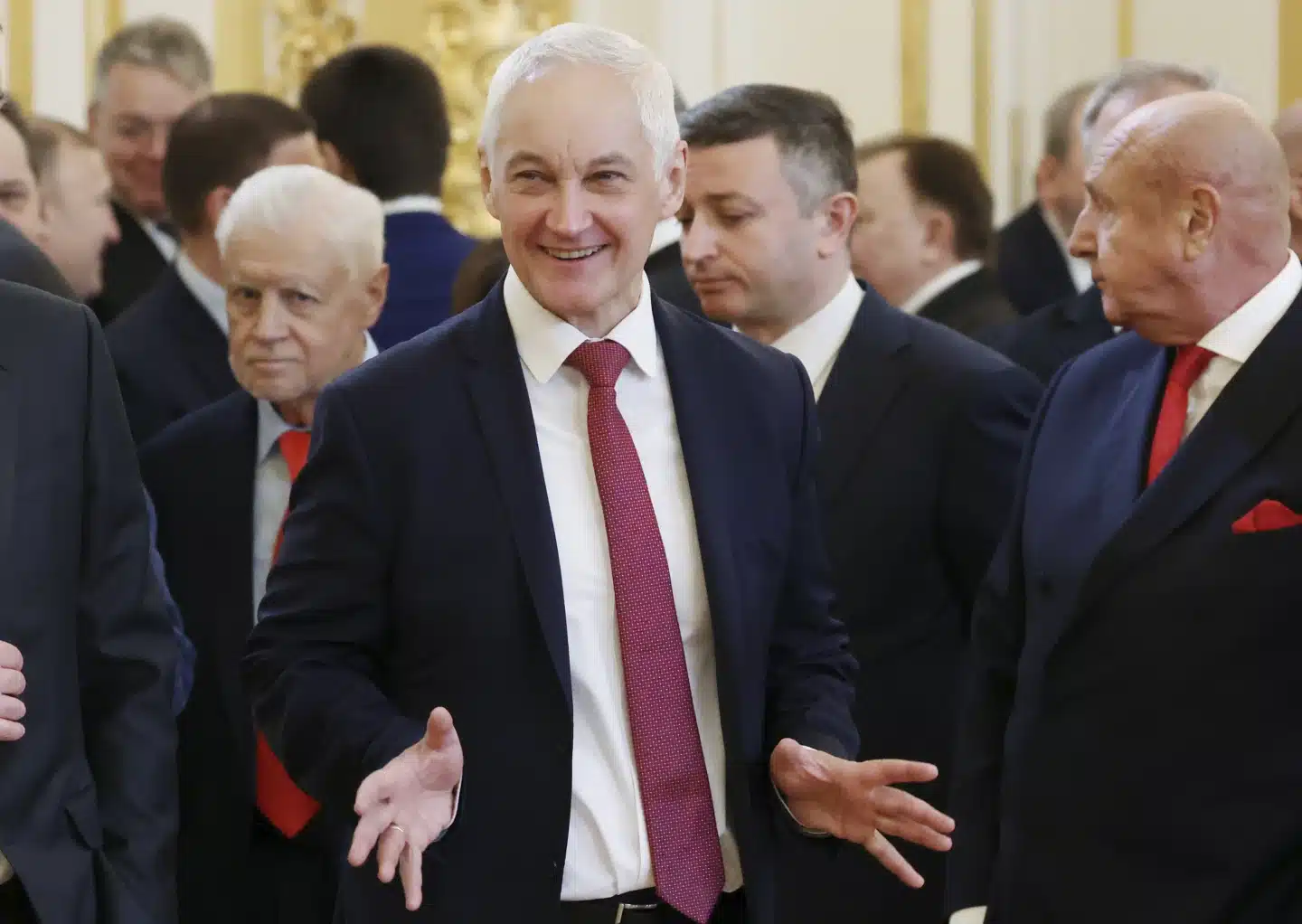
Russian President Vladimir Putin replaced Sergei Shoigu as defense minister on Sunday in a Cabinet shakeup as he begins his fifth term.
In accordance with Russian law, the entire Russian Cabinet resigned Tuesday following Putin’s spectacular inauguration in the Kremlin. Most members were widely anticipated to preserve their posts, although Shoigu’s status remained uncertain.
The Kremlin reported that Putin signed a decree on Sunday naming Shoigu as secretary of Russia’s Security Council. The appointment was revealed shortly after Putin requested that Andrei Belousov replace Shoigu as the country’s defense minister.
Shoigu’s new job was announced after 13 people were killed and 20 more injured in Russia’s border city of Belgorod when a 10-story apartment building partially collapsed due to what Russian officials claimed was Ukrainian shelling. Ukraine has not commented on the incident.
AP – VOR News Image
Putin Replaces Shoigu As Russia’s Defense Minister As He Starts His 5th Term
Russia’s upper chamber of parliament must accept Belousov’s candidacy, the Federation Council. On Sunday, it was claimed that Putin had also submitted ideas for additional Cabinet seats, but Shoigu is the only minister on the list who is being changed. Prime Minister Mikhail Mishustin, whom Putin reappointed on Friday, offered several new federal ministry candidates on Saturday.
Shoigu’s deputy, Timur Ivanov, was detained last month on suspicions of bribery and ordered to be held in custody pending an official inquiry. Despite Shoigu’s close personal ties with Putin, the arrest of Ivanov was widely regarded as an attack on him and a likely precursor to his dismissal.
According to Kremlin spokesman Dmitry Peskov, Putin chose a civilian as defense minister because the ministry should be “open to innovation and cutting-edge ideas.” He also stated that the increased defense budget “must fit into the country’s larger economy” and that Belousov, who previously served as first deputy prime minister, is the best candidate for the position.
Belousov, 65, held senior roles in the prime minister’s office’s finance and economic departments and the Ministry of Economic Development. In 2013, he was appointed Putin’s adviser, and seven years later, in January 2020, he was named first deputy prime minister.
Peskov promised that the change would not affect “the military aspect,” which “has always been the prerogative of the Chief of General Staff,” and that Gen. Valery Gerasimov, who now holds this position, will continue to operate.
Tatiana Stanovaya, a senior fellow at the Carnegie Russia Eurasia Center, wrote in an online commentary that Shoigu’s new appointment to Russia’s Security Council demonstrated that the Russian leader saw the institution as “a reservoir” for his “‘former’ key figures — people he can’t let go of, but doesn’t have a place for.”
Former Russian President Dmitry Medvedev has also been named to the Security Council. Medvedev has served as the body’s deputy chairman since 2020.
AP – VOR News Image
Putin Replaces Shoigu As Russia’s Defense Minister As He Starts His 5th Term
Shoigu was chosen to the Security Council instead of Putin’s longtime supporter, Nikolai Patrushev. Peskov announced on Sunday that Patrushev is taking on a new job and promised to divulge more details in the coming days.
Shoigu is largely seen as a crucial role in Putin’s decision to deploy Russian soldiers into Ukraine. Russia expected the operation to easily crush Ukraine’s much smaller and less-equipped army and for Ukrainians to warmly welcome Russian troops.
Instead, the conflict inspired Ukraine to launch a fierce resistance, giving humiliating blows to the Russian army, including a retreat from an effort to seize the capital, Kyiv, and a counteroffensive that drove Moscow’s forces out of the Kharkiv area.
Shoigu spent over 20 years conducting varied tasks before being named defense minister in 2012. In 1991, he was appointed head of the Russian Rescue Corps disaster response organization, which later became the Ministry of Emergency Situations. He got visible in the post. As the rescue corps absorbed the armed Civil Defense Troops, he was promoted to general despite having no military background.
Shoigu does not have the same power level as Patrushev, who has long been the country’s top security official. However, the post he will occupy — the same job that Patrushev fought to elevate from a low bureaucratic role to one of significant influence — will still have some weight, according to Mark Galeotti, the president of the Mayak Intelligence consultancy.
Despite the changes at the top, high-level security materials destined for the president’s eyes will continue to transit through the Security Council Secretariat. “You can’t just institutionally turn around a bureaucracy and how it works overnight,” he stated.
Thousands of civilians have fled Russia’s resumed ground offensive in Ukraine’s northeast, which has targeted towns and villages with artillery and mortar fire, officials said Sunday.
The fierce fighting has caused at least one Ukrainian battalion to evacuate from the Kharkiv region, ceding more territory to Russian forces across less-defended villages in the so-called contested gray zone near the Russian border.
By Sunday afternoon, Vovchansk, one of the major towns in the northeast with a prewar population of 17,000, had emerged as a battleground.
Volodymyr Tymoshko, the chief of the Kharkiv regional police, stated that Russian forces were approaching the town from three angles.
An Associated Press team stationed in a nearby village witnessed plumes of smoke billowing from the town as Russian forces fired shells. Evacuation teams worked tirelessly throughout the day to transport inhabitants, most of whom were elderly, out of harm’s way.
At least 4,000 citizens have fled the Kharkiv region since Moscow’s forces initiated the operation on Friday, according to Gov. Oleh Syniehubov’s social media statement. Heavy fighting raged Sunday along the northeast front line, with Russian soldiers attacking 27 towns in the last 24 hours, he added.
AP – VOR News Image
Putin Replaces Shoigu As Russia’s Defense Minister As He Starts His 5th Term
The Ukrainian military said the Kremlin is employing the standard Russian technique of launching disproportionate amounts of fire and infantry assaults to deplete Ukrainian troops and weapons. By increasing fighting in what was previously a static sector of the front line, Russian forces threatened to shut down Ukrainian soldiers in the northeast while also gaining ground further south.
It follows Russia’s increased attacks on energy infrastructure and settlements in March, which many anticipated were part of a coordinated effort to prepare the stage for an onslaught.
The Russian Defense Ministry announced on Sunday that its forces had conquered four villages near the border with Ukraine’s Kharkiv area, in addition to the five villages reported to have been taken on Saturday. Because of the dynamic combat and continual intense shelling, these regions were most likely under-fortified, allowing Russia to move more easily.
Ukraine’s leadership has not acknowledged Moscow’s advantages. However, Tymoshko, the commander of the Kharkiv regional police, stated that Strilecha, Pylna, and Borsivika were under Russian possession and that infantry was being brought in from their direction to organize attacks in other beleaguered villages, such as Hlyboke and Lukiantsi.
SOURCE – (AP)
News
Wildfires in Fort Nelson BC Expands to 17 Square Miles Forcing Evacuations
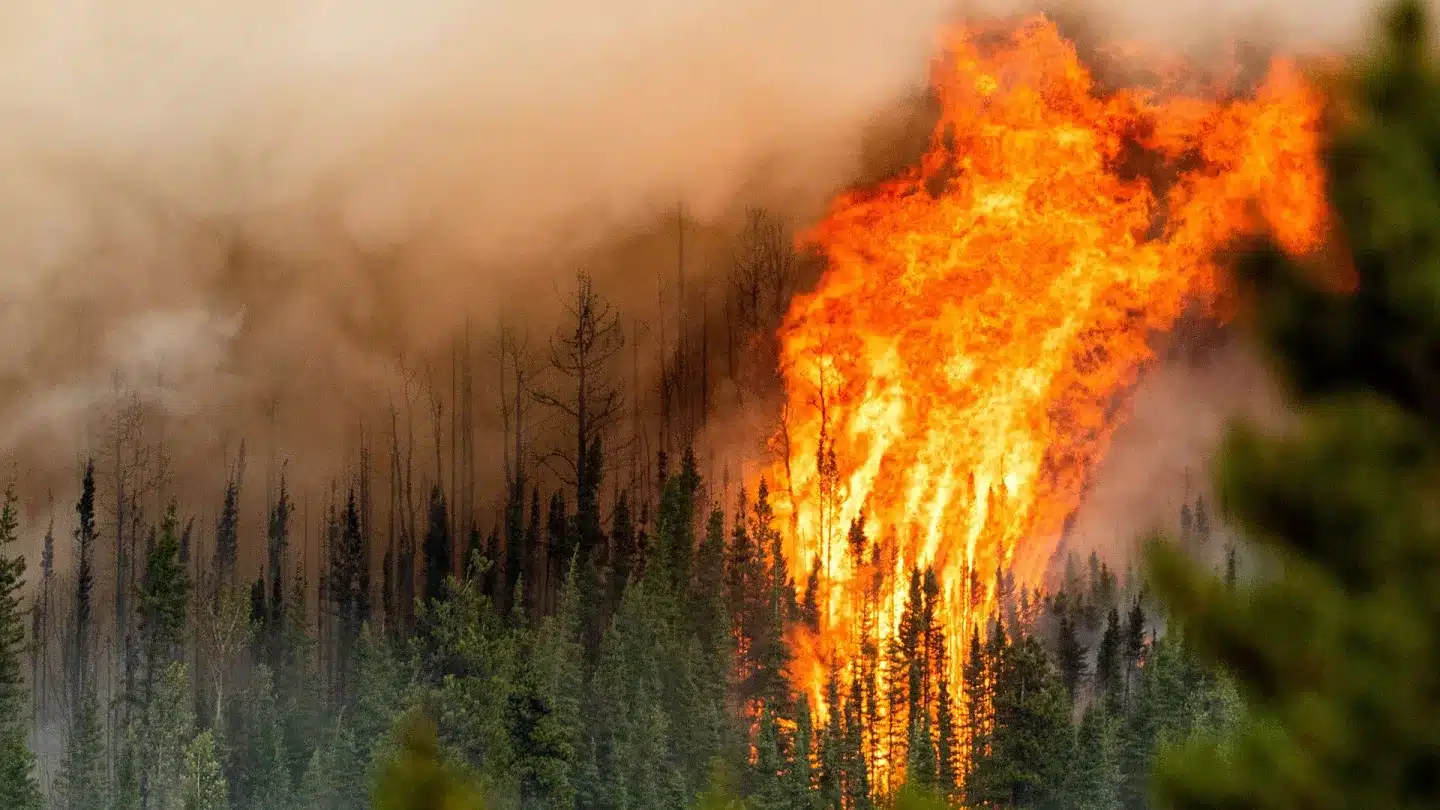
Authorities in British Columbia Canada are urging all remaining residents in Fort Nelson to leave immediately, despite improving weather conditions, after many were already evacuated due to a fast-growing wildfires.
The blaze, which started Friday, almost doubled in size the following day, reaching about 17 square kilometers (4,200 acres). BC Wildfire Service maps showed the fire burning just a few kilometers (miles) west of Fort Nelson’s city limits.
Fort Nelson is located in the far northeastern corner of British Columbia, about 1,600 kilometers (995 miles) from Vancouver. Fort Nelson and the Fort Nelson Indian Reserve have a combined population of about 3,000.
In 2023, Canada witnessed a record number of wildfires that also caused choking smoke in parts of the U.S. and forced tens of thousands of people to evacuate across British Columbia.
Authorities in Alberta also issued an alert about a wildfire nearly 25 kilometers (15.5 miles) southwest of the oil sands city of Fort McMurray that could impact visibility on highways in some areas. No evacuation order has been given so far for the major Canadian oil city.
In 2016, more than 80,000 people evacuated from Fort McMurray, in the heart of Canada’s oil sands, as a fire torched 1,600 homes and other buildings. The high winds pushed smoke across Alberta on Saturday, putting the city of Edmonton under an air quality advisory with hazard levels rated at 10-plus — or “very high risk” — forecast.
Meteorologists are not anticipating rain and have advised people to stay indoors.
Online footage shared by locals from the Fort Nelson wildfire showed thick plumes of smoke rising high into the sky, with houses in the foreground. In some photos, haze seemed to cover wide areas.
The Northern Rockies Regional Municipality and Fort Nelson First Nation issued a joint statement warning people choosing to stay that “emergency medical services are not available, nor are groceries or other amenities.”
The municipality mayor, Rob Fraser, said most of the residents in and around Fort Nelson have been evacuated, adding that police were going door to door to ensure everyone got out.
Health authorities said Fort Nelson General Hospital has been safely evacuated and closed until further notice.
Annual Wildfires in British Columbia
Wildfires are not new to British Columbia; they occur every year. Every year, hundreds of fires break out, some caused by lightning strikes, others by human negligence. As the temperature warms, fire seasons get longer and more intense. Without quick action, wildfires will only intensify, according to experts.
Combating these infernos comes at a startling cost. British Columbia spends millions of dollars deploying troops, aircraft, and equipment. Fires devastate wildlife habitats and emit enormous amounts of carbon dioxide into the atmosphere. Economies suffer as tourism declines and companies close during evacuations.
Regardless of the obstacles, BC fights hard. Firefighters have intensive training. Advanced modeling predicts fire behavior. Public education increases awareness. Nonetheless, the fires continue to spread, fueled by heat and drought. Wildfires have become British Columbia’s yearly summer scourge, and there is no end in sight.
-
Sports5 months ago
Saints’ Aggressive Play-Calling Ends Up Coming Back To Hurt Them In Loss To Rams
-
Business5 months ago
Nike Says It Will Cut $2 Billion In Costs In A Major Warning For Consumers
-
Business5 months ago
Federal Court Revives Lawsuit Against Nirvana Over 1991 ‘Nevermind’ Naked Baby Album Cover
-
News4 months ago
The Rise of Woke Ideology in Western Culture
-
Business5 months ago
Wayfair CEO: Employees Need To Work Longer Hours, After Laying Off 5% Off The Company
-
Sports5 months ago
StreamEast Live Sports Streaming: The Ultimate Guide



